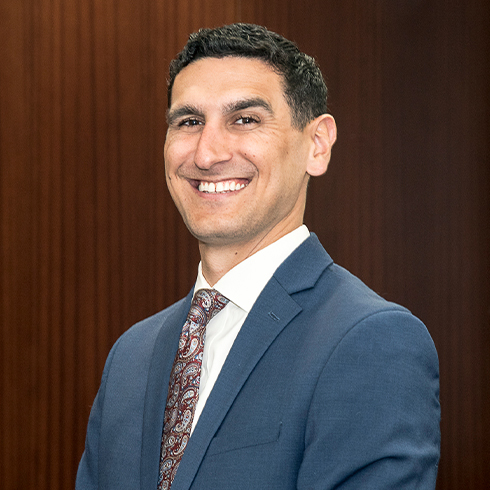In Maryland, the legal landscape surrounding wrongful death cases is complex, necessitating a thorough understanding of the statutes that govern these sensitive and critical claims. The statute of limitations for wrongful death cases is a pivotal aspect of the legal process, as it dictates the timeframe within which a lawsuit must be filed. Failing to adhere to these deadlines can result in the forfeiture of the right to seek justice and compensation for the untimely death of a loved one. Therefore, comprehending the intricacies of the statute of limitations for wrongful death cases in Maryland is essential for anyone facing such a tragic situation.
The Legal Framework of Wrongful Death in Maryland
Wrongful death claims in Maryland are governed by the Maryland Courts and Judicial Proceedings Code, specifically under Sections 3-901 through 3-904. These provisions establish the foundation for wrongful death lawsuits, outlining who may file a claim, the types of damages that can be sought, and the critical deadlines for initiating legal action. The purpose of wrongful death statutes is to provide a legal remedy for the survivors of the deceased, allowing them to recover damages for their losses resulting from the wrongful act, neglect, or default of another party.
Key Components of the Statute of Limitations
The statute of limitations for wrongful death cases in Maryland is codified in Section 3-904 of the Maryland Courts and Judicial Proceedings Code. According to this statute, a wrongful death action must be filed within three years from the date of the deceased person’s death. This three-year period is a strict deadline, meaning that if a claim is not filed within this timeframe, the right to pursue legal action is generally barred. Understanding this deadline is crucial for ensuring that the legal rights of the survivors are preserved.
Exceptions and Tolling Provisions
While the three-year statute of limitations is the general rule, there are exceptions and tolling provisions that can affect the timeframe for filing a wrongful death claim. One notable exception is the “discovery rule,” which can extend the filing deadline in certain circumstances. The discovery rule applies when the cause of the deceased person’s death was not immediately known or could not have reasonably been discovered at the time of death. In such cases, the statute of limitations may be tolled until the cause of death is discovered or reasonably should have been discovered. This exception is particularly relevant in cases where the wrongful act or negligence was not apparent until after the initial period following the death.
Another important consideration is the impact of criminal proceedings on the statute of limitations for wrongful death cases. In some instances, if a criminal case is being pursued against the party responsible for the death, the statute of limitations for the wrongful death claim may be tolled until the conclusion of the criminal proceedings. This tolling provision ensures that the survivors have the opportunity to seek justice in the civil courts without being hindered by ongoing criminal matters.
Amazing firm. Went above and beyond in making me feel welcomed, informed, and at ease considering the serious reasons for me being there. It was my first time dealing with something like this and it was comforting knowing I had a whole team behind me working to get the best outcome possible which they did. Highly recommend this firm to anyone looking for a good reliable lawyer who will work with you and be considerate of your well being.” - Daniel Torres
Who Can File a Wrongful Death Claim?
In Maryland, the right to file a wrongful death claim is limited to specific individuals who are closely related to the deceased. The primary beneficiaries, or “primary claimants,” are typically the surviving spouse, children, and parents of the deceased. If there are no primary claimants, secondary beneficiaries, such as siblings or other dependents, may be eligible to file a claim. The statute of limitations applies uniformly to all potential claimants, regardless of their relationship to the deceased.
Types of Damages in Wrongful Death Cases
The damages recoverable in a wrongful death case are intended to compensate the survivors for their losses resulting from the death of their loved one. These damages can be categorized into economic and non-economic losses. Economic damages may include medical expenses, funeral and burial costs, lost wages and benefits, and the value of services the deceased would have provided. Non-economic damages encompass the emotional and psychological impact of the death, such as loss of companionship, loss of consortium, and pain and suffering experienced by the survivors.
Verdicts & Settlements
The Role of Legal Representation
Navigating the complexities of wrongful death claims and the statute of limitations in Maryland requires the guidance and support of an experienced attorney. Legal representation is essential for ensuring that all procedural requirements are met, deadlines are adhered to, and the rights of the survivors are vigorously protected. An attorney can provide invaluable assistance in gathering evidence, negotiating with insurance companies, and presenting a compelling case in court.
Factors Influencing the Statute of Limitations
Several factors can influence the statute of limitations in wrongful death cases, making it imperative for survivors to act promptly. The specific circumstances surrounding the death, such as the nature of the wrongful act or negligence, the availability of evidence, and the existence of any potential defendants, can all impact the timeline for filing a claim. Additionally, the involvement of multiple parties or entities, such as corporations or government agencies, may introduce additional complexities that necessitate careful legal analysis and strategy.
75% of people who are injured due to someone else's negligence don't believe they could pursue an injury claim. 95% of personal injury cases are settled pretrial. Typically, only about five percent of personal injury claims will go to trial. $0 is the amount it will cost you to contact us and start your personal injury claim. Reach out for a free consultation.Personal Injury Statistics
The Importance of Timely Action
Timely action is of utmost importance in wrongful death cases to ensure that the legal rights of the survivors are protected. The statute of limitations serves as a critical safeguard for defendants, preventing the indefinite threat of litigation. However, for survivors, this deadline underscores the urgency of seeking legal counsel and initiating the claims process without delay. Acting promptly allows for a thorough investigation, preservation of evidence, and the ability to secure witness testimonies, all of which are essential for building a strong and compelling case.
Legal Strategies for Overcoming Statute of Limitations Challenges
In some cases, survivors may face challenges related to the statute of limitations, such as disputes over the discovery rule or the applicability of tolling provisions. Experienced attorneys can employ various legal strategies to address these challenges and advocate for the rights of their clients. For example, attorneys may present evidence demonstrating that the cause of death was not reasonably discoverable within the initial three-year period, thereby justifying an extension of the filing deadline. Additionally, attorneys can argue for tolling based on the existence of ongoing criminal proceedings or other relevant factors.
Contact Us Today
Understanding the statute of limitations for wrongful death cases in Maryland is a fundamental aspect of seeking justice and compensation for the untimely loss of a loved one. The legal framework governing these cases is designed to provide a pathway for survivors to hold responsible parties accountable and to obtain the financial and emotional support they need to move forward. Given the complexities and nuances of wrongful death claims, it is imperative for survivors to seek the guidance of a compassionate attorney who can navigate the legal process and advocate on their behalf.
If you have lost a loved one due to the wrongful act, neglect, or default of another party, the legal team at Alpert Schreyer Injury Accident Lawyers is here to help. Our experienced attorneys understand the profound impact of such a loss and are committed to providing the support and representation you need during this difficult time. We will work tirelessly to ensure that your rights are protected and that you receive the justice and compensation you deserve. Contact us today to schedule a consultation and take the first step toward securing justice for your loved one.
















